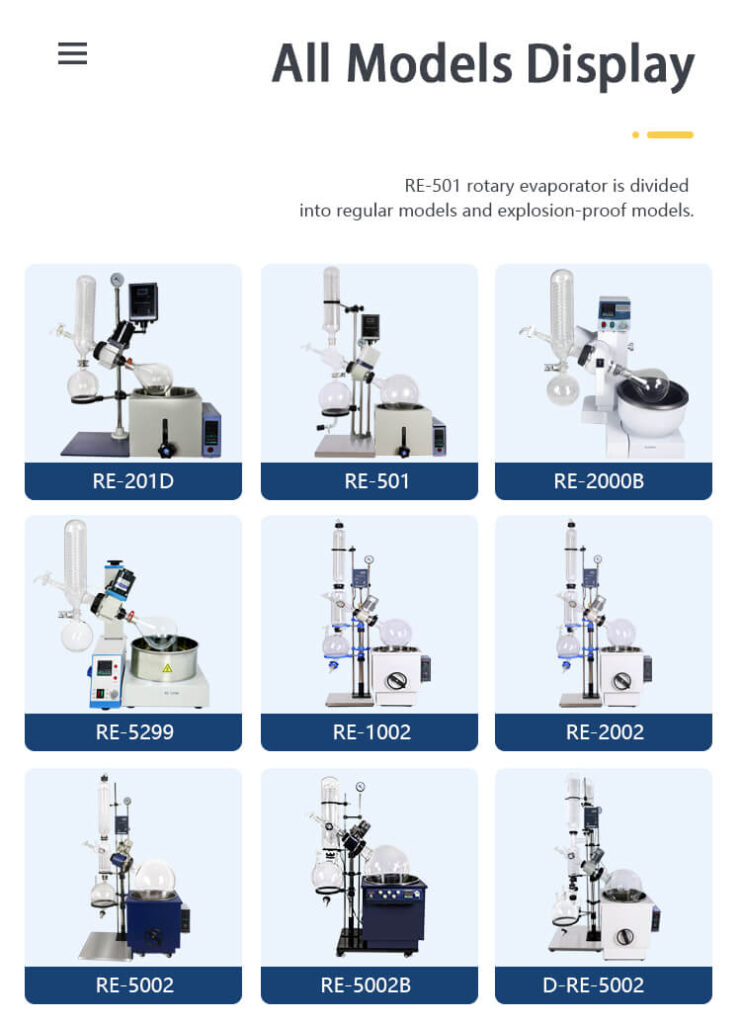Rotary evaporators, often referred to as rotovaps, are versatile pieces of equipment that have found widespread applications across various industries. These ingenious devices are pivotal in processes involving solvent removal, concentration, and purification. In this article, we delve into the diverse realms where rotovap price applications shine, showcasing their indispensable roles in laboratories, research, and industrial settings.
Understanding Rotary Evaporators
Before we dive into the myriad applications of rotary evaporators, let’s take a moment to understand the basic principles behind this equipment. Rotary evaporators are essentially distillation systems that employ rotation and heat to efficiently and gently remove solvents from samples, leaving behind concentrated compounds. They consist of a rotating flask, a heated water bath, a condenser, and a vacuum system. This combination allows for precise control over the evaporation process, making them essential tools in various fields.

Laboratory Research
One of the primary domains where rotary evaporators find extensive use is in laboratory research. These devices are the unsung heroes in the world of science, facilitating countless experiments and analyses. Here’s how they make a difference:
Laboratories across the globe rely on rotary evaporators for solvent removal and sample concentration. Whether it’s in chemistry, biology, or pharmaceuticals, researchers frequently encounter the need to separate solvents from their samples. Rotary evaporators offer a controlled and efficient method to achieve this, allowing scientists to obtain purified substances for further analysis.
In addition to solvent removal, rotary evaporators play a pivotal role in sample preparation. They are often used to concentrate dilute solutions, making them more suitable for analytical techniques like chromatography and spectroscopy. This concentration step enhances the sensitivity and accuracy of these analytical methods, ultimately advancing scientific discoveries.
Furthermore, rotary evaporators find applications in the synthesis of compounds. Chemists use them to evaporate and recover solvents during chemical reactions. This not only minimizes waste but also ensures that valuable reagents are conserved, leading to cost-effective research and production processes.
Industrial Applications
Beyond the confines of laboratories, rotary evaporators extend their utility into various industrial sectors. Their adaptability and efficiency make them indispensable tools in these domains:
1. Pharmaceutical Industry
The pharmaceutical industry heavily relies on rotary evaporators for drug formulation and production. These devices are instrumental in concentrating active pharmaceutical ingredients (APIs) and removing residual solvents from drug formulations. The result is the creation of safe, potent, and high-quality medications that meet rigorous regulatory standards.
2. Food and Beverage Industry
In the food and beverage industry, rotary evaporators are used for flavor extraction and concentration. They enable the extraction of essential oils, flavors, and aromas from natural sources, such as herbs, fruits, and spices. This process enhances the taste and fragrance of food products, appealing to consumers’ senses.
3. Environmental Analysis
Environmental scientists employ rotary evaporators in the analysis of environmental samples. These devices help in concentrating water and soil samples for the detection of contaminants, pollutants, and chemicals. The precision offered by rotary evaporators is crucial in ensuring accurate environmental assessments.
4. Petrochemical Industry
In the petrochemical sector, rotary evaporators are used to separate and recover valuable compounds from crude oil and petroleum products. This process aids in the production of cleaner and more refined fuels and chemicals, contributing to environmental sustainability.
5. Cannabis Extraction
With the growing legalization of cannabis in various parts of the world, the cannabis extraction industry has seen significant growth. Rotary evaporators play a central role in extracting cannabinoids and terpenes from cannabis plants, ensuring the production of potent and consistent cannabis products.

Conclusion
Rotary evaporators, with their remarkable versatility and efficiency, have become indispensable tools in laboratories, research institutions, and industries worldwide. From facilitating precise scientific research to enhancing the quality of consumer products, the applications of rotary evaporators are as diverse as the fields they serve. As technology continues to advance, these devices are likely to find even more innovative uses, further solidifying their status as indispensable equipment in various domains.
